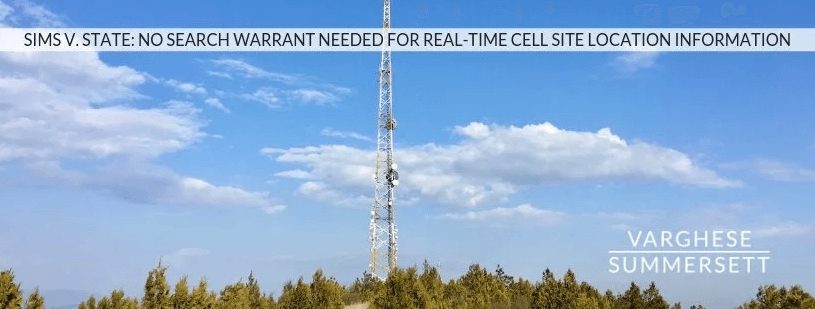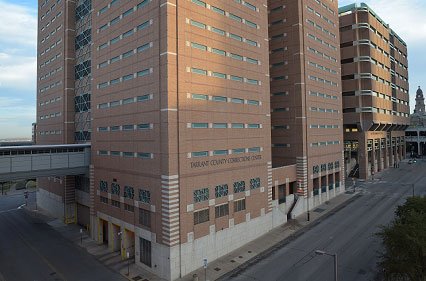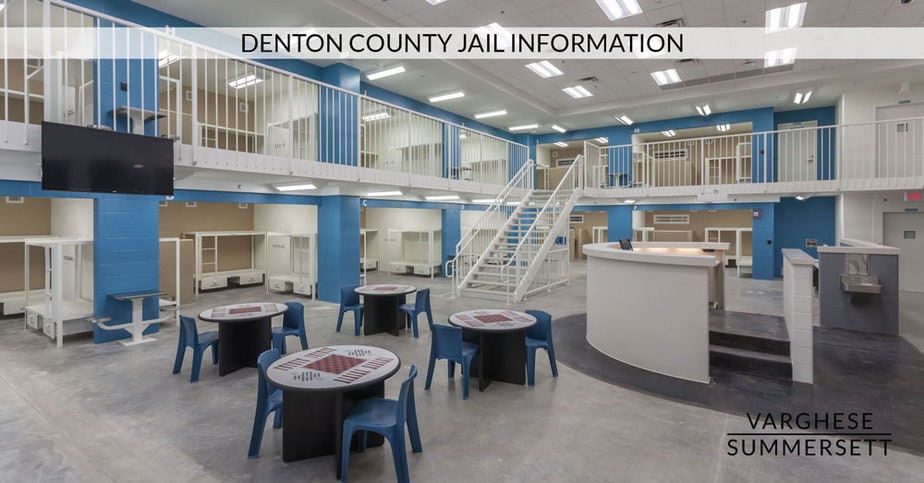
Sims v. State: Can Police Obtain Real-Time Cell Site Location Without Warrant?
The Texas Court of Criminal Appeals recently went to great lengths to explain how it came to decision with a different result than the United States Supreme Court in Carpenter v. U.S. In Sims v. State, the Court of Criminal Appeals determined a search warrant was not required when using real-time cell site location information (CSLI) for three hours to find a suspect. The Court reached this decision despite Carpenter v. U.S. where the Supreme Court found that retrieval of 127 days of historical CSLI was a violation the Fourth Amendment.
What is CSLI?
CSLI, or cell-site location information, is the data held by third parties (typically cellular companies like AT&T or Verizon) for business purposes in order to provide better service to their customers. When a person uses their cell phone to make a call, send a text, or access an application that requires the use of data, the phone connects with the cell tower, and the activity is stored. The data is retrieved and stored in cell towers. This data has the ability to provide time-stamped locations of the phone.
Because cell phones have become an integral part of everyday life, this dependency assures the location of a phone can be connected to the location of a person. The recent growth in the number of cell towers has allowed CSLI location readings to become more accurate, pinpointing a phone’s location within 50 meters.
CSLI and the Fourth Amendment
The Fourth Amendment provides that a person is free from unreasonable searches and seizures, and that you, your home, your papers, and your things are secure and protected from warrantless search.
In order to obtain a warrant, authorities must establish probable cause. The necessity of a warrant provides a safeguard from governmental intrusion on a person’s individual privacy. The question then becomes whether tracking CSLI infringes upon a person’s right to a reasonable expectation of privacy. Though providing the same information, the Supreme Court has made a distinction as to whether CSLI is real-time or historical. Real-time CSLI is used to track current situations that are unfolding, whereas historical CSLI retroactively looks to see the phone’s location at certain points in time. The bright-line parameters have yet to be fully established and the inquiry is fact sensitive.
Carpenter v. U.S. (2018)
While a more robust and detailed account of Carpenter v. U.S. can be found here, this article will discuss the parts pertinent to the discussion regarding Sims v. State.
The Court in Carpenter held the police cannot request 127 days of CSLI without a warrant, and that doing was a violation of a person’s Fourth Amendment right to privacy from unreasonable search and seizures. The Court declined to follow the Third-Party Doctrine, that a person relinquishes their right to privacy when information and documents are shared with a third party. While data stored in cell towers is held by a third party, it is not freely given in the same way as financial or bank records. Rather, the recording of physical locations are an automatic function of a cell phone any time it is turned on. The Court also noted that the number of days the police pulled CSLI, providing a complete record of the location of the phone during that time period, contravenes the reasonable expectation to privacy that is guaranteed by the Fourth Amendment. Finally, the Court highlighted the narrow nature of their holding, and that it extended only to historical CSLI, and not real-time CSLI. Furthermore, the Court noted in exigent circumstances (e.g. pursuit of a fleeing suspect, or to protect individuals who are threatened with imminent harm), an officer would be able to obtain real-time CSLI information without a warrant.
Sims v. State (2019)
In Sims, the defendant was charged with the murder of his grandmother. She was killed by a single gunshot wound to the back of her head. The police found that the victim’s car, purse, and two guns were missing, and were assumed to have been taken by the suspects. The officers discovered the suspects used a credit card from the purse at a Walmart in Oklahoma, roughly 80 miles north of where the victim was found. The officers thought there would be probable cause to attain a warrant for CSLI, however when they returned to the office, another officer had already attained CSLI without a warrant. The officers used the CSLI data to locate and apprehend the suspects. The defendant filed a motion to suppress the CSLI data alleging that accessing the CSLI records without a warrant was a violation of the Fourth Amendment.
In determining whether obtaining real-time CSLI records violated the Fourth Amendment, the Court looked to Carpenter and determined that what mattered was not the content of the CSLI records, but rather was whether the government seized “enough” information from the records that it violated a legitimate expectation to privacy. The Court noted that there is not a bright-line rule for determining how long police must track a cell phone in real time before it violates a recognized expectation of privacy, but merely determined that threshold was not met in this instance. The Court did not distinguish between historical and real-time data, nor did it claim that this case fell under the exigent circumstances exception mentioned in Carpenter. They simply determined that three hours of real-time CSLI tracking did not invade the legitimate expectation of privacy afforded by the Fourth Amendment.
Making Sense of Conflicting Cases
Because of Carpenter’s limited scope, it may be possible to harmonize Sims with Carpenter. First, Carpenter does not address the issue of real-time CSLI. Second, the amount of data extended 127 days whereas in Sims the data was limited to three hours. While we do not know where the proverbial line in the sand is for how much data is too much, we now have two ends of the spectrum, giving us a general baseline to determine when obtaining CSLI without a warrant violates the Fourth Amendment.
Contact Us
Was your cell site location information obtained without a warrant in a criminal case? Give us a call at 817-203-2220 or contact us online.



